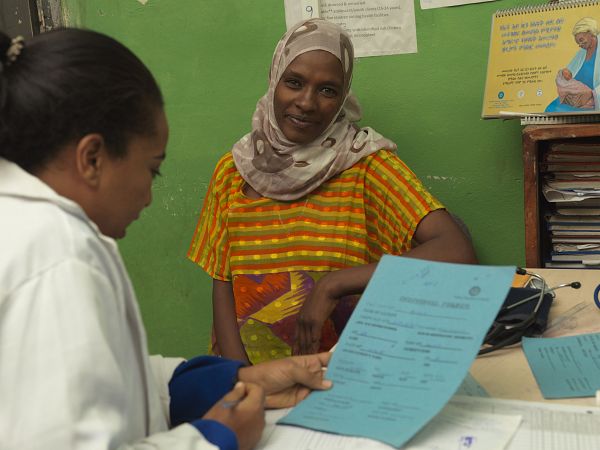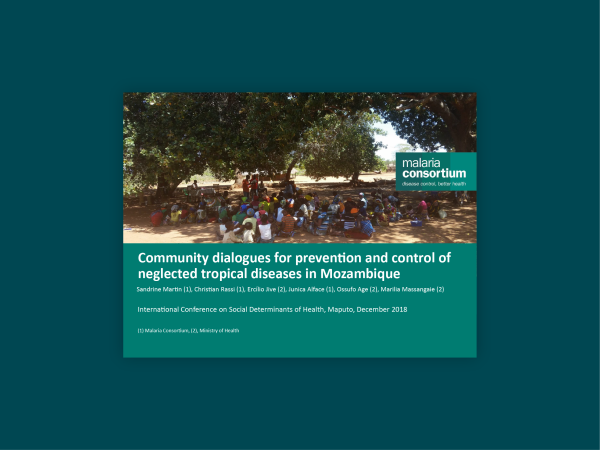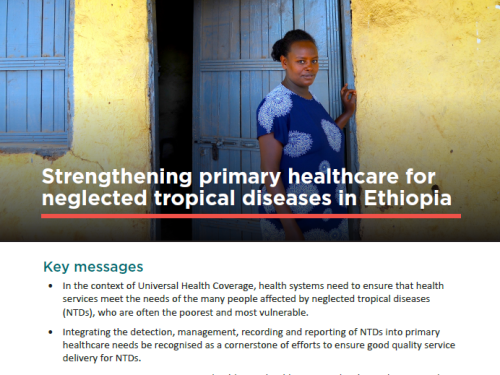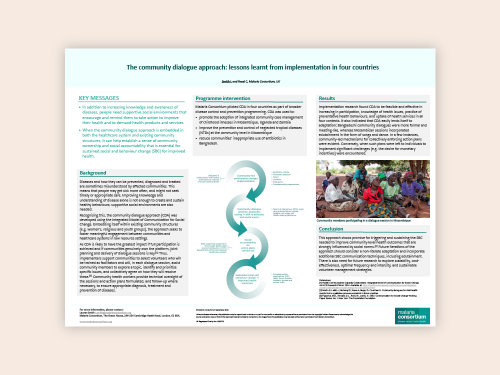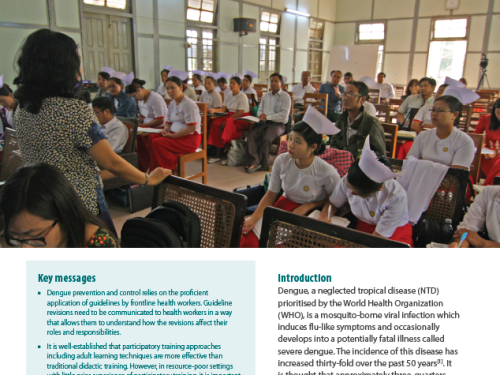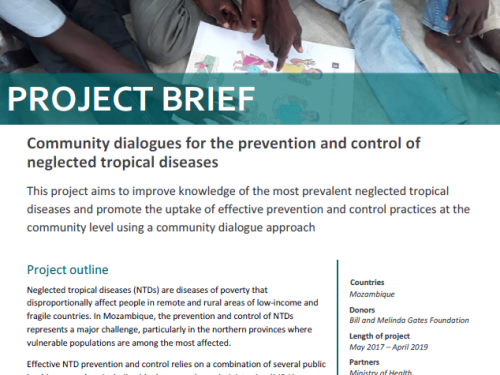Assessing and addressing barriers to IPTp uptake in Uganda
September 2013 - December 2016
Malaria poses a significant risk to both pregnant mothers and their unborn children. Malaria in pregnancy leads to approximately 900,000 low birth weight deliveries in Africa every year, which the World Health Organization (WHO) calls ‘the single most important risk factor for newborn and early infant mortality and morbidity’.
To prevent malaria infections among pregnant women living in areas of moderate or high transmission, WHO recommends intermittent preventive treatment in pregnancy (IPTp), a full therapeutic course of antimalarial medicine given to pregnant women regardless of whether or not they are infected with malaria. The treatment is designed to be included as part of antenatal care (ANC). In Uganda, there is a national target for 85 percent of pregnant women to receive at least two doses of IPTp by 2015. However, while the proportion of women who receive ANC in Uganda is high, with around 90 percent of women attending ANC at least twice, less than 25 percent of pregnant women in Uganda receive the recommended two doses of IPTp. The implication is that many opportunities to administer the treatment are being missed.
Malaria Consortium has conducted research to determine which barriers are holding back the uptake of IPTp in Uganda and is carrying out a pilot intervention to address these barriers.
Our findings suggested that from the supply-side, frequent stock-outs in private-sector facilities and poor health worker knowledge of IPTp guidelines were impacting on pregnant women receiving the appropriate dose of IPTp, meaning opportunities for its provision were missed. Other barriers to adequate treatment included issues relating to procedure. From the demand side, our research found that pregnant women visiting private facilities were sometimes being charged for what should be free treatment. Health seeking behaviour was also highlighted as an issue, with some interviewees stating they only seek medical care during their pregnancy if they feel unwell.
Based upon this formative research, Malaria Consortium developed, implemented, and evaluated a small-scale pilot intervention aimed at increasing the number of pregnant women receiving at least two doses of IPTp as part of the focused antenatal care package in Uganda. The intervention involved sending text messages to health workers emphasising current IPTp provision guidelines. The pilot intervention concluded in November 2015. We have analysed data collected during and after the intervention to assess if text messaging health workers was an effective method to reinforce training and increase adherence to guidelines. Full results will be published over the coming months.
Resources
Blog: Reducing the risk of malaria in pregnancy in Uganda – observations from the field
Project brief: Assessing and addressing barriers to IPTp uptake in Uganda - Formative research
Project brief: Assessing and addressing barriers to IPTp uptake in Uganda – Pilot intervention
Blog: Barriers to IPTp uptake in Uganda
Presentation: Assessing and Addressing Barriers to IPTp Uptake in Uganda
Research brief: Assessing and addressing barriers to IPT2 uptake in Uganda
